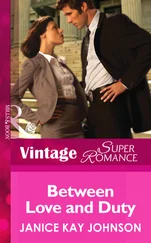“Really?” She couldn’t know how uncertain she sounded.
“Yeah,” he said. “I’m just not used to my partners having a makeover.”
“I didn’t go that far,” she said, really quickly, the pink in her cheeks deepening. “I only did my eyebrows.”
Uh-huh. She was hiding something. God. Had she had a bikini wax, too? Was that why she was embarrassed?
He felt a surge of lust that shocked him. It was all he could do not to let his gaze lower to her crotch. Just for a second, he’d imagined her naked, a thatch of silky dark hair at the vee between smooth thighs and a flat, pale belly.
He looked away from her so fast, something cracked in his neck. Don’t think of her that way, he ordered himself. She’s a cop, your partner. Never, ever, imagine her naked again.
Keeping himself from thinking anything at all seemed to be the only way he could prevent pictures from forming before his mind’s eye. But sustaining a giant blank like a dry-erase board where he normally had a tangle of thoughts and plans and images took an enormous effort. His palms grew sweaty.
“I made a few calls,” she said, breaking the silence and bailing him out.
“Calls?”
“About Dad. And Leroy Pearce.”
“Right.” He relaxed fractionally. He could think about this. “What’d you learn? Wait.” He put on his turn signal. “Let’s stop for a cup of coffee.”
No espresso here. The truck stop café had padded booths patched with duct tape, middle-aged waitresses in starched pink uniforms who willingly refilled white china mugs whenever the level dropped, and French fries that tasted so good, they were probably still being made in beef fat.
Reluctantly, he skipped the fries. Breakfast hadn’t been that long ago. But he figured a piece of pie would settle.
One of the things he liked about Ann Caldwell was her appetite. Most women were on a perpetual diet. She never seemed to give a thought to calories.
When he said, “Pie sounds good,” she agreed.
“Make mine cherry,” she told the waitress. “Warm.”
“À la mode?”
“Why not?”
“Boysenberry,” he said. “I’ll take the ice cream, too.”
“Okay,” he said, once the waitress had left them alone in a booth in the far corner. “Find out anything?”
“That scrape along the driver’s side door and fenders bothered the mechanic who looked at the truck after the accident. He mentioned it in his report, but no one picked up on it.”
“Who would remember if the scrapes were there before that night?” Diaz frowned. “Where was your father going?”
“He was on his way home from The Blue Moon.” The tavern was a popular hangout for the older cops. “He had a blood-alcohol level that would have gotten him in trouble if he’d been pulled over, too. That’s one reason ‘accident’ was the obvious answer. He was speeding, lost control on the curve…” She shrugged.
“What do you think?”
Her voice was clipped. “Dad liked his beer. But I never knew him even to wander across a center line when he was behind the wheel. He carried it well. You know?”
“That’s what they all say,” Diaz reminded her.
She grimaced. “Yeah, I know. But, see, he drove me places a lot when he’d had as much as a six-pack. And, if anything, he’d slow down. Get more cautious. He never speeded. He said he’d picked up too many body parts off highways. When I got my license, he told me that if I was ever ticketed for speeding, I wasn’t driving again for a year. If I was lucky.”
“He wasn’t, um…” Diaz tried to think how to phrase his question without offending her. “He hadn’t been feeling low about anything?”
His meaning sank in and her voice rose. “Low?”
The waitress brought their pies, but neither of them picked up a fork or broke their locked stare.
“You’re asking if he was depressed?” She flattened her hands on the table. “You think he might have committed suicide?”
“He drove at high speed into a tree. Yeah, the thought occurred to me.”
Her face worked, and he braced himself for the blast.
“No! He’d never do that!” She breathed heavily. “How can you even suggest…?” She broke off with a lurch, as if a sob had torn at her throat.
In alarm, he said, “Jeez, Caldwell. Don’t get worked up. I just figured I should throw the possibility on the table.”
“It’s a horrible thing to say!”
“I’m not making an accusation. I just asked. Cops commit suicide, just like other people.”
“Not my father!” she yelled.
Heads on the other side of the diner turned.
“Okay, okay,” Diaz soothed. “Had you seen him in the week before he died?”
“I talked to him the day before.” She glared at him as if he was going to argue. “He was feeling good about an arrest, and he claimed he had a break in the Lofgren case. He wanted to know why my arrests were so low for the month.” She swallowed. When she continued, she’d stripped her voice of emotion. The change was so stark from her passionate defense of a moment before, he knew the memory must burn in her belly. “Dad said if I couldn’t do the job, he’d seen an ad for a new session at the cosmetology school. Then he—” She stopped again. Deliberately relaxed, but Diaz saw the effort it took. She stirred her coffee, although the half a teaspoon of sugar she’d added had long since dissolved. “He was his usual supportive self. That was just his way.” She shrugged again. “He wasn’t any different than ever. If anything, he seemed to be in a good mood.”
Suddenly furious for reasons he hardly grasped, Diaz asked, “Then he what?”
She stared at him.
“Tell me.”
“What difference does it make?”
“I want to know,” he said, rough and unyielding.
Just audibly, she said, “He laughed. ‘Hell, they wouldn’t take you once they got a look at you.’ That’s what he said. But by God, if I couldn’t use the advantages he’d given me to do the job, I’d better start exploring other career paths.”
Diaz wished the son of a bitch was alive so he could plant a fist in his face. “He just couldn’t admit you might be his equal.”
“But why?” she whispered, as much to herself as to him. “Did he hate me?”
Diaz couldn’t remember ever hearing Sgt. Caldwell talk about his daughter. “Maybe,” he suggested, “he desperately had that urge men sometimes do to live on through a son. He couldn’t see himself in you, so you wouldn’t do.”
“I tried.” The two small words were as desolate as anything he’d ever heard.
“If he wasn’t proud of you, he didn’t deserve you.”
She looked at him with those vivid, desperate eyes. “You have a son and a daughter both, don’t you?”
“Yeah.” Picturing his kids, dark-haired and bright-faced, smart, mischievous, all bony elbows and knees and warm cuddly bodies at the same time, Diaz knew his voice softened. “Can I live again through my son but not my daughter? Is that what you’re asking?”
She glanced down, saw the ice cream melting in pale rivers around her pie, and picked up her fork. “I guess.”
“No.” He couldn’t imagine the concept, not the way she meant. “Actually, I see more of myself in Elena than Tony. He looks like his mom, loves to talk like she does. He’s creative, too, like she is. Elena’s more for mulling things over before she gives an opinion and takes action. Tony’s the rash one.”
Around a bite, Caldwell asked, “You were a cautious kid?”
“Yeah, I hung back.” Damn, this was good pie. “I can remember every time Mom served a new dish, I’d watch my sisters’ faces as they tried it before I put a bite in my mouth.”
Caldwell laughed, and he saw that some of the misery had left her face.
Читать дальше












